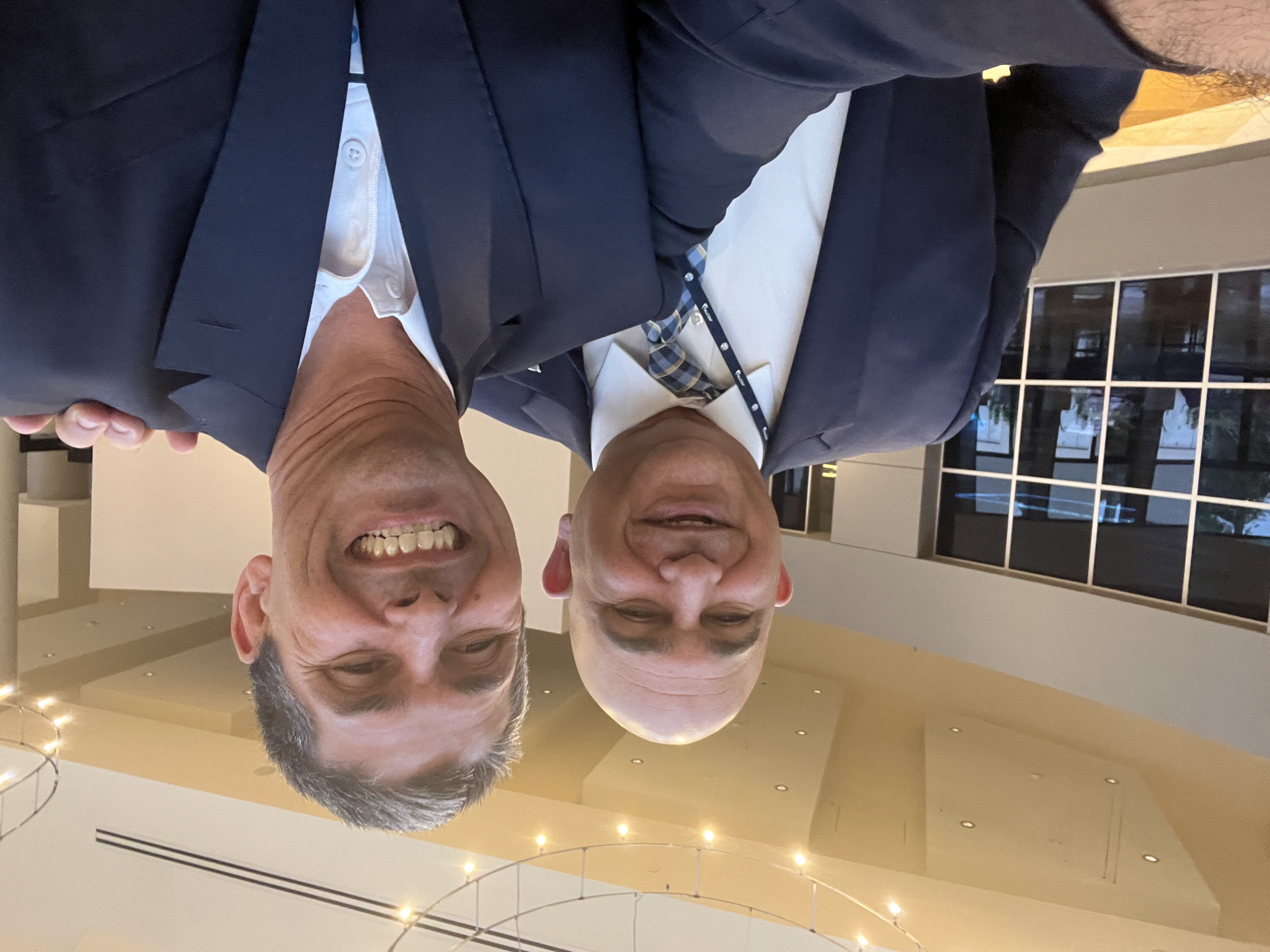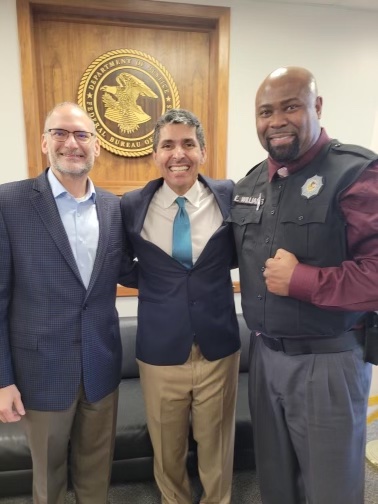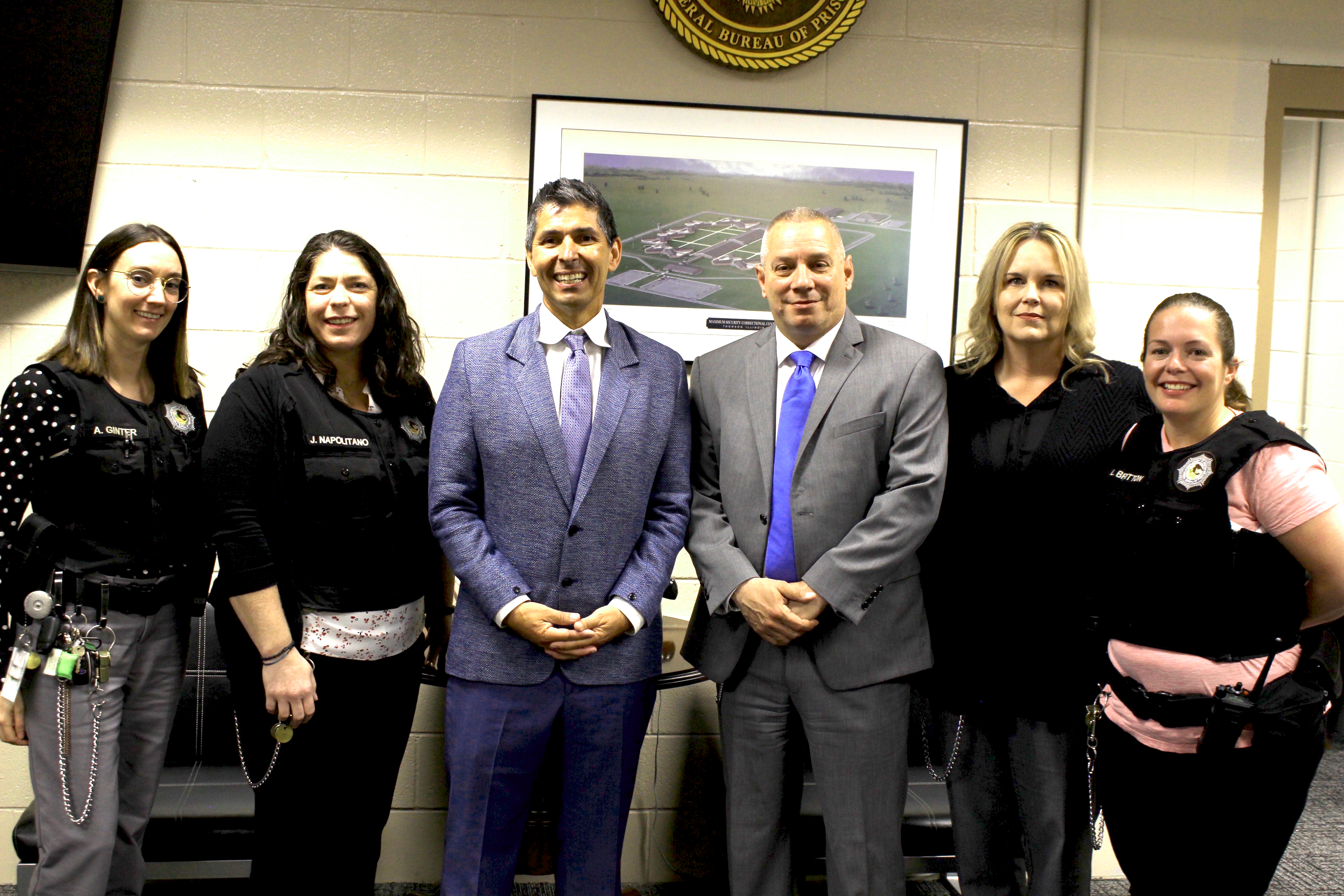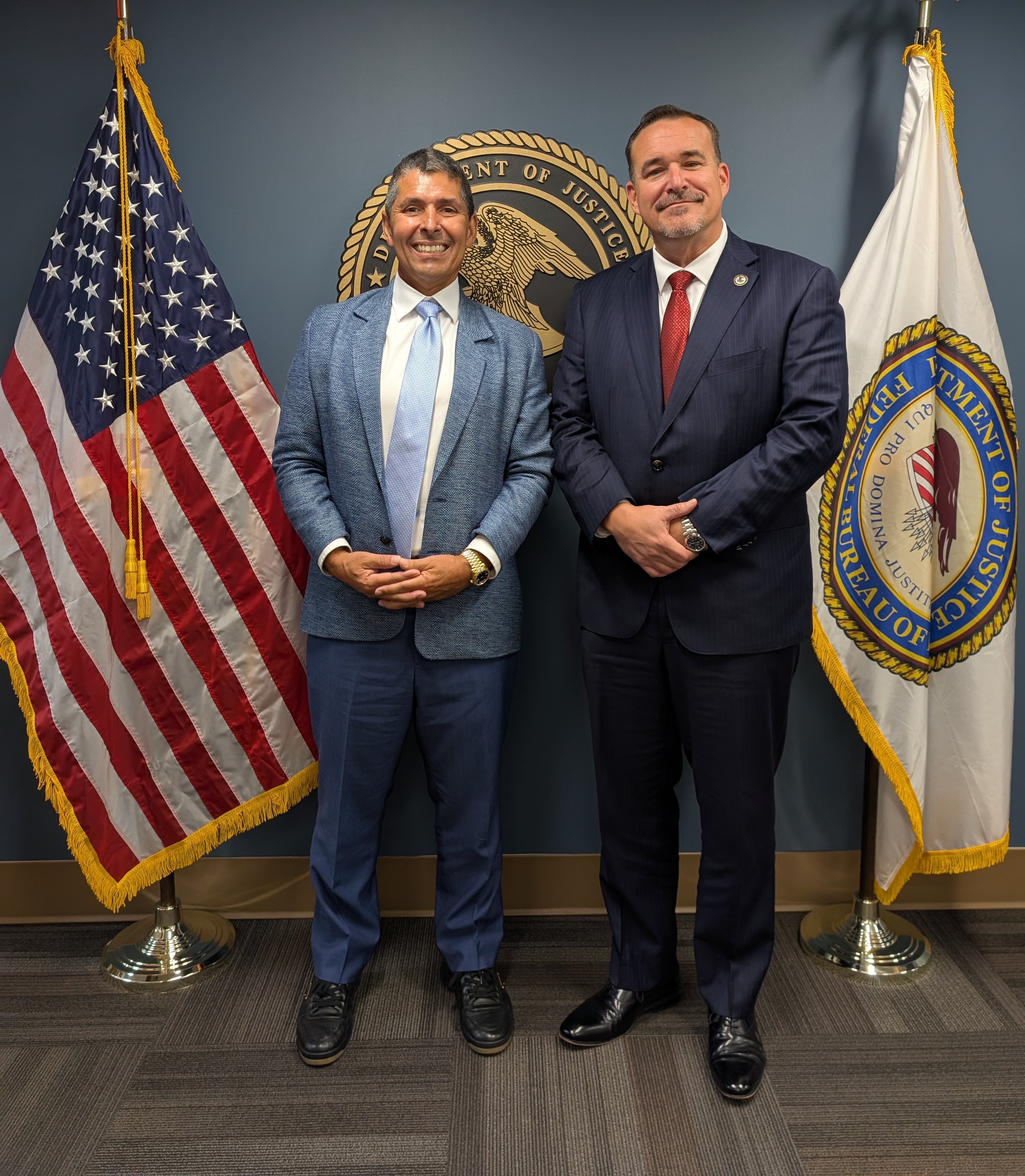Turn Effort into Opportunity for Better Outcomes!
Free tools to document growth, accountability, and preparation for success.
NEWFree Federal Sentence Calculator



At BOP Headquarters with Deputy Director Josh Smith
WE'RE HERE FOR YOU
Free Resources Designed for Your Role
Whether you're facing charges, preparing for the journey ahead, supporting a loved one, representing clients, or working in corrections, choose the path below to access relevant tools and resources.
Your Story Has Power. Put it On Record by Writing.
Whether you're facing charges, serving time, or rebuilding after release, your journey matters. Document your growth, demonstrate accountability, and build a record showing merit and why you're worthy of higher levels of liberty.
“When I went before the parole board, I showed them my profile. 847 lessons completed, over 50,000 words written. They could see I wasn't just talking about change—I was living it. That profile helped me earn my freedom.”
Join 4,907+ people building documented records of preparation. We designed our dashboards to support real-world decision making that can lead to higher levels of liberty, based on merit.
Document Your Growth
Every lesson completed, every reflection written—your profile captures the work you're putting in. Create a record to show why you're worthy of relief.
Show Decision-Makers
Judges, parole boards, and employers look for evidence of change. Your profile provides tangible evidence of your commitment to transformation.
Track Your Progress
Watch your progress grow with the points you earn. See how far you've come—and stay motivated by documenting each milestone.
100% Free Resources
Everything You Need to Prepare
and Document Progress on Your Profile
Lessons, books, and podcasts—created by people who earned the highest level of liberty, at the soonest time, and succeeded upon release.
Daily Lessons
Short, practical lessons that help you prepare, build skills, and document progress toward reentry.
Free Books
Books that teach and inspire, showing how to prepare for different stages of the journey, and work toward the best possible outcomes.
Podcasts
Real conversations with formerly incarcerated people and others who can offer insights and strategies to grow through the crisis of confinement.
Stories of Transformation
Real voices from people who've used our programs to prepare for success.
““I am currently incarcerated at the Debra K. Johnson Rehabilitation Center in Nashville, Tennessee. Since receiving a tablet in October 2024, I discovered Prison Professors, and it has been by far the best self-help learning module I have come across. Your remarkable story is amazing and inspiring....”
“When I first came to prison, I thought my life was basically over. My focus was on the mistakes I made and the years I had lost. I spent a lot of time feeling angry at myself and the situation I was in. Discovering the Prison Professors platform changed the way I started thinking about my time here...”
“*Testimonial received via U.S. Mail* My name is Aubrey Clemons, and I am serving a 115-month sentence at USP Lee. I am not eligible for First Step Act benefits due to my charges, but that has not stopped my commitment to change. For the past thirteen years, I have worked to be a positive force. I...”
Daily Lessons
Practical strategies and hard-earned wisdom to help you navigate the system, prepare for what's ahead, and build a path to success.
Testing the Full Pipeline — Launch Verification
Prison Professors provides comprehensive support for individuals navigating the criminal justice system. Our courses, resources, and community empower successful outcomes, from sentencing to reentry, helping justice-impacted individuals build meaningful futures through education and accountability.

Feb 26, 2026
Aspiration and Mandela
Regardless of what challenges you're going through now, your aspirations should prompt you to build the next chapter of your productive life.

Feb 24, 2026
Newsletter_2_24_26
To serve our community, we've created a new "category" to show changes we're making to serve the members of our community.

Feb 21, 2026
Framework to Succeed
While going through any stage of a crisis, visualize the best possible outcome. Then use a framework that will lead you to success, as you define it.
Get Free Guidance for Your Situation
Whether you're facing incarceration, supporting a loved one, or working in corrections—we'll send you personalized resources to help.
- Free personalized email guidance based on your situation
- Access to exclusive lessons and resources
- No spam, no sales—just support. Unsubscribe anytime.
Start today by signing up!
Select your situation to get personalized guidance
Support Our Mission
Your tax-deductible donation helps provide free education and advocacy to people in prison and their families.
Sends one book to someone in prison
Provides course materials for 5 people
Sponsors one person's complete PSAP course
Funds books for an entire housing unit
100% of donations fund free education. Prison Professors is a 501(c)(3) nonprofit.
EIN: 85-2603315. All donations are tax-deductible.
Ready to Get Started?
Whether you're preparing for sentencing, supporting a loved one, or looking to volunteer—we're here to help.
